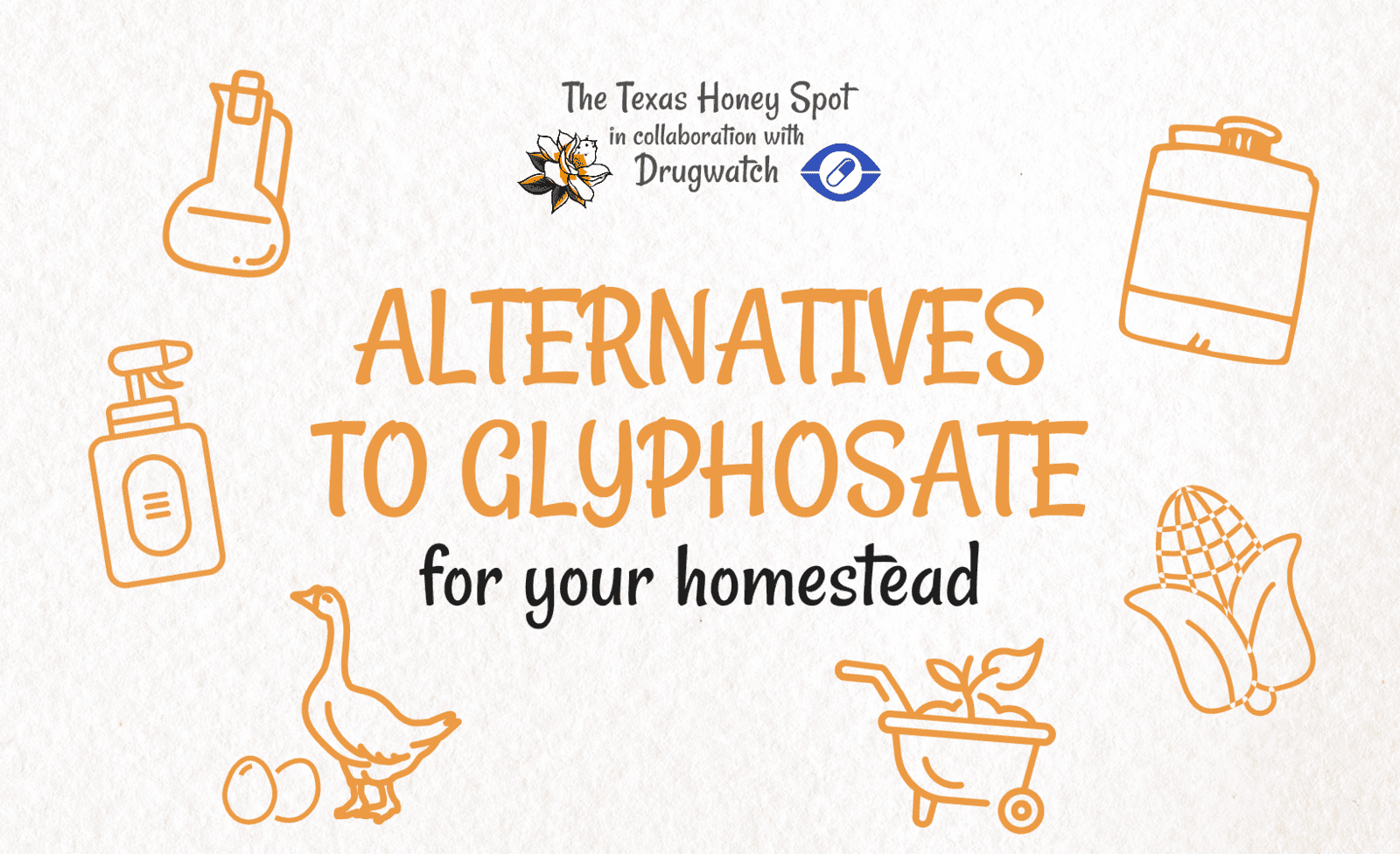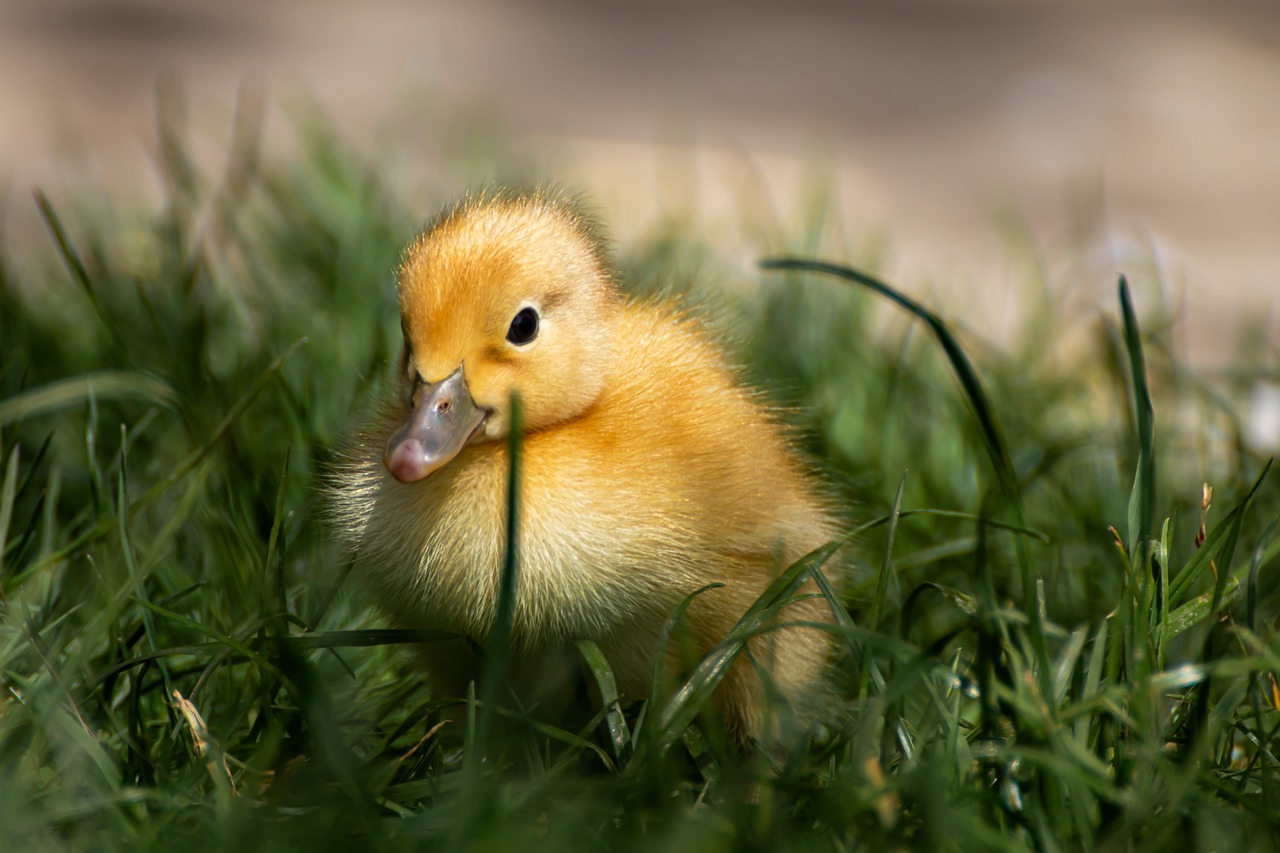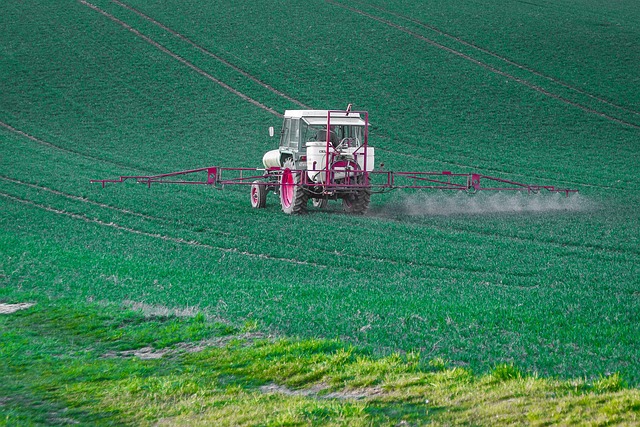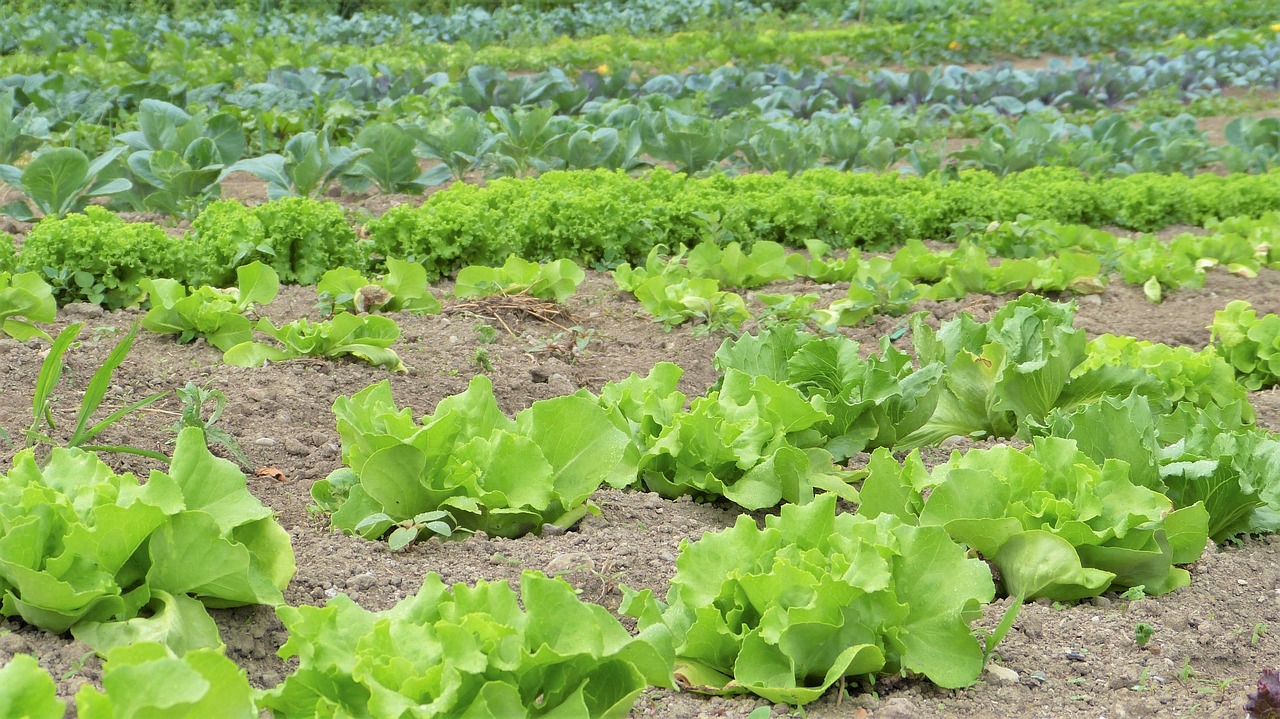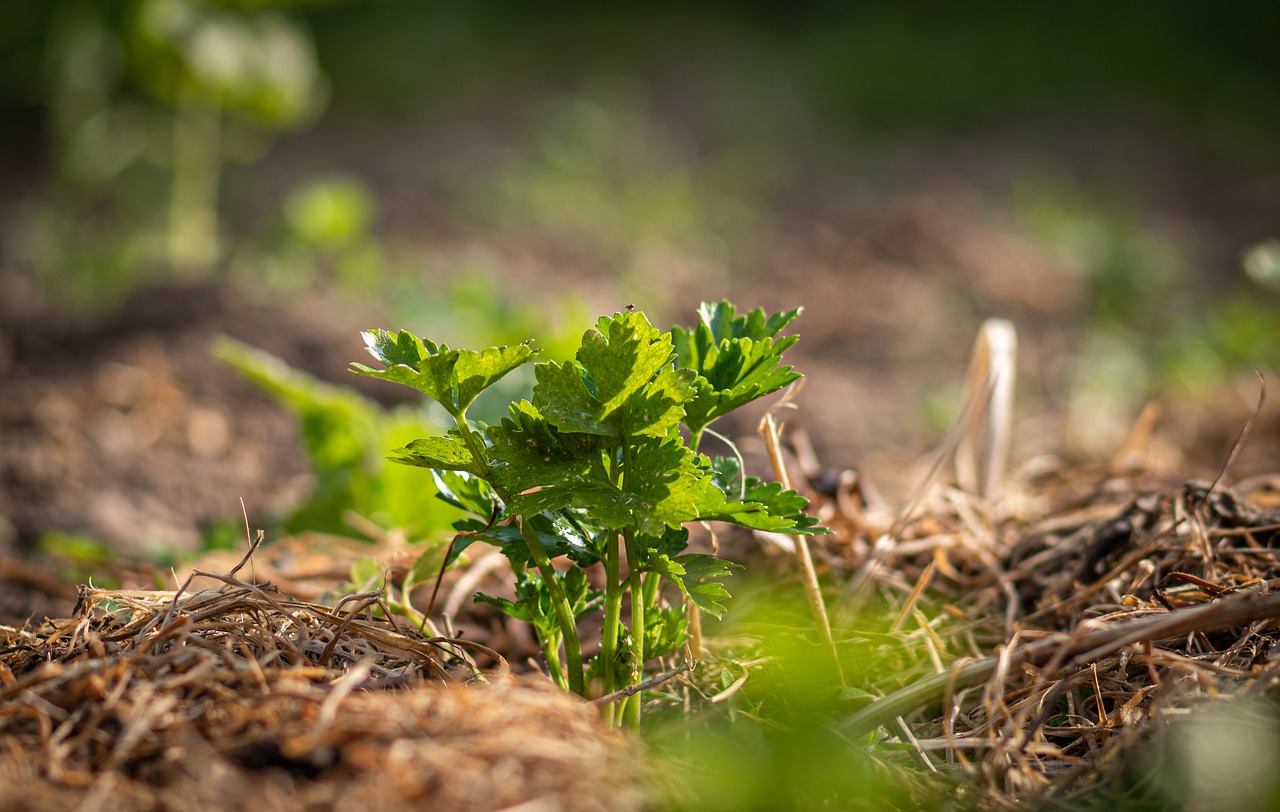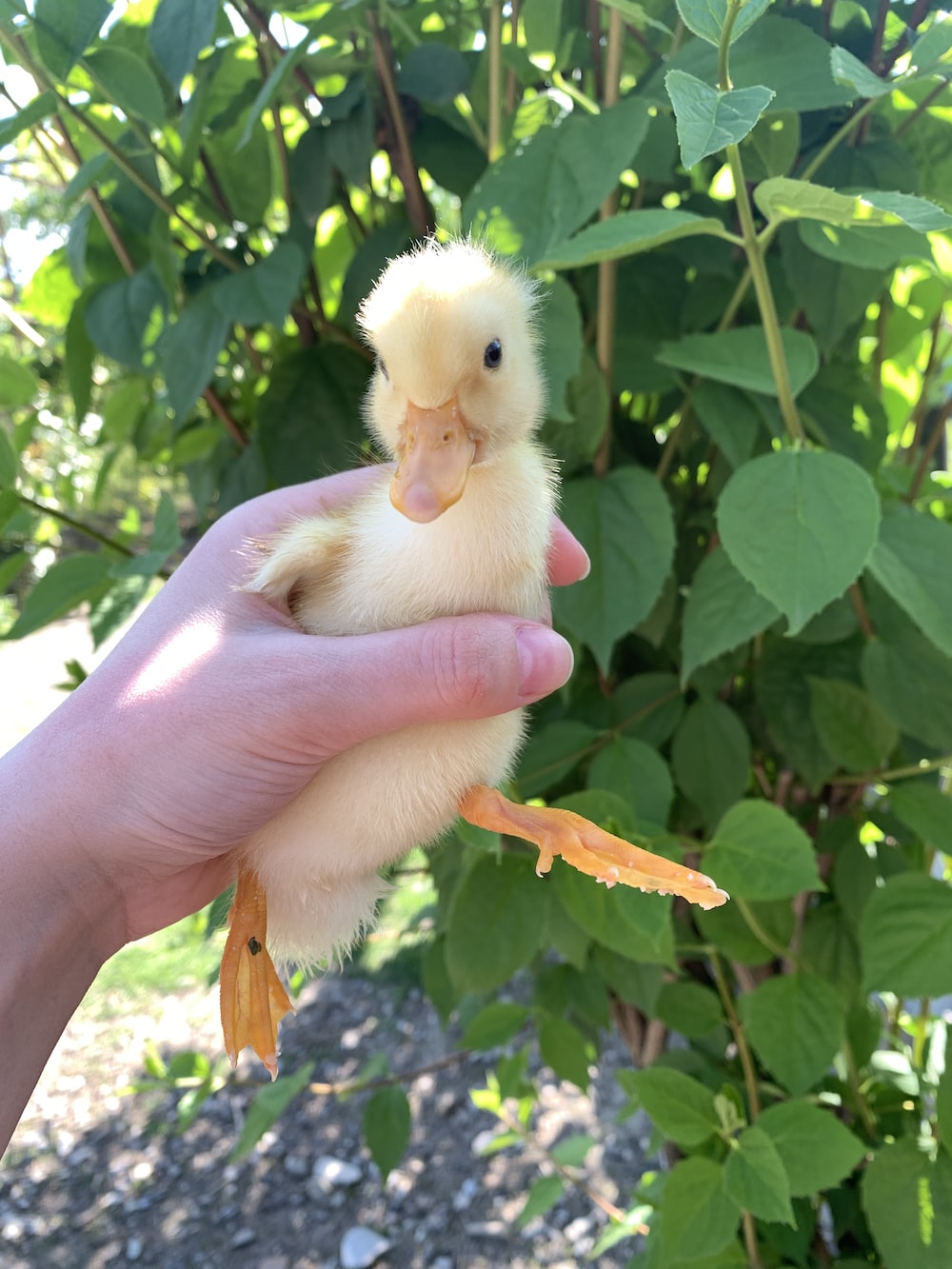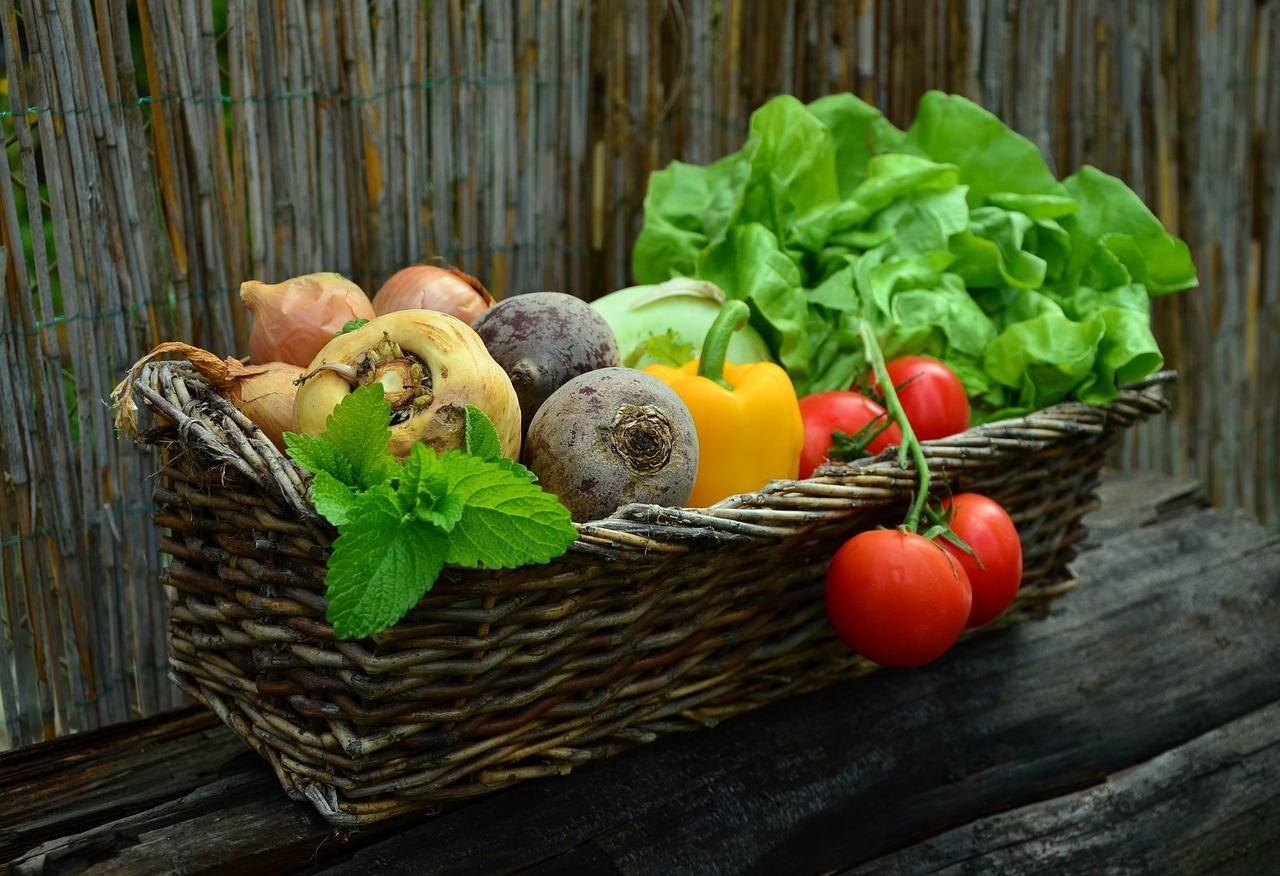Last Updated: Fri, Jun 1, 2025
A product called Roundup has long been the go-to solution for removing weeds. From large agricultural setups to small hobby farms like ours, this popular herbicide has seen widespread use in and around the areas that we grow our food and raise our animals. Recent stirrings in the scientific community have sown seeds of doubt about Roundup's long-term safety. Glyphosate, Roundup's active ingredient, is now under scrutiny for health risks.
As someone with limited grazing areas for my animals, I want to ensure my land stays as weed-free as possible, but not at the expense of health or environmental safety. So let's dig into the issues surrounding Roundup, and learn about alternative options for small farms and homesteads.
This post contains affiliate links where you can purchase our recommended products from our partner. Your purchase helps support our farm at no extra cost to you.
Roundup Safety Concerns
You might have heard that Roundup has been under the microscope lately. This herbicide has been around since the 70s and gained popularity for its unmatched ability to tackle weeds of all types. But lately, many are questioning its safety.
The World Health Organization (WHO) has labeled glyphosate—the active ingredient in Roundup—as "probably carcinogenic," meaning, in their opinion, glyphosate has the potential to cause cancer. And they're not alone; other independent studies have backed up these claims, making it harder to dismiss them. The issue has even made it to court, with people filing lawsuits against Bayer, the company that now owns Roundup. These lawsuits claim that Roundup is responsible for their cancer. Is it true? It's certainly enough to make you stop and think.
Many homesteaders are beginning to seriously think about what they're using on their farms, gardens, and yards. With the risks of glyphosate becoming more evident, it's definitely time to explore alternatives. Used correctly, there are even some alternatives that are more effective at achieving the end result of killing unwanted weeds.
What Exactly Is Glyphosate?
As we discussed before, glyphosate is the main ingredient in Roundup and responsible for the product's weed-killing abilities. It's a herbicide that halts the growth of plants by inhibiting the specific enzymes they need to thrive. When you spray it onto a plant, the glyphosate is absorbed and travels down to the roots, killing the plant from the inside out. Unfortunately, glyphosate can kill many different types of plants (including good ones, like the vegetables and herbs in your garden).
This isn't the time for me to discuss my opinion on GMO foods, but, in large-scale farming operations, many crops have been specifically designed to withstand the effects of Roundup, so whole fields can be sprayed for weeds without harming the plants. Unfortunately, the glyphosate doesn't magically disappear after it is used on the plants. The glyphosate can stick around in the soil, water, and even find its way into our food, which can a huge concern when we don't know the full impact of this chemical on our health.
There are studies that claim that glyphosate is generally safe for humans. Don't just listen to some random lady you don't know on her blog; look at the studies yourself, and be critical! Pay attention to their methods, and pay attention to who funds them. Be especially mindful of studies that are funded by companies that produce glyphosate-based products. That should always give you a little doubt about the objectivity of the study. On the flip side, independent researchers have conducted studies that suggest that glyphosate isn't so safe, for people consuming foods sprayed with glyphosate or for the farmers applying it. Again, take a look at the studies yourself.
At the end of the day, we know glyphosate is effective at killing weeds and that there are rising concerns about its wider impact, not just on our gardens but also on our health and the environment. Given these concerns, let's explore some safer alternatives in the sections to come.
Safer Alternatives to Roundup That Don't Contain Glyphosate
If glyphosate has potential risks like cancer, what are the safer routes we can take to maintain a weed-free garden or farm? Many of the alternatives we can use are more ecologically friendly, or are items you likely have in your household. These items work by either stifling the weed's growth or killing it outright, without the use of more harsh "chemicals" (be mindful of using the word chemicals: technically, everything is a chemical!).
Herbicidal Soaps
Herbicidal Soaps such as Sunday Weed Warrior are one alternative to glyphosate, offering an eco-friendly way to manage weeds. These soaps contain fatty acid salts that break down the waxy outer layer of plants, leading to dehydration and ultimately, plant death. A benefit of herbicidal soap is its specificity; it works on contact, affecting only the plants it directly touches. This makes it easier to protect your desired plants while targeting the invasive ones. However, like all herbicides, it does have limitations. Herbicidal soaps are generally most effective on young weeds and less so on mature, woody plants. Plus, they're not a "spray-and-forget" solution; you'll need to reapply for persistent or larger weed problems.
Iron-Based Herbicides
If you want to stick with the "chemical" route, an alternative such as an iron-based herbicide is worth considering. This can be very effective, work within hours, and is generally considered safer than glyphosate-based herbicides. Additionally, iron acts as a fertilizer, enhancing soil quality, though this benefit doesn't extend to topical applications, so take that with a grain of salt. When using an iron-based herbicide such as Southern Ag Chelated Liquid Iron, be sure to read the application instructions for the most effective treatment.
Corn Gluten Meal
Corn gluten meal serves as a unique, natural alternative to glyphosate that's particularly effective against germinating seeds. Spread as granules, powder, or liquid, it creates an inhospitable environment for new seeds, preventing them from taking root in the first place. While it won't impact established plants, its primary advantage is acting as a preemptive strike against future weed growth. It's worth noting that corn gluten meal requires specific conditions to be effective. For instance, it's less effective in wet conditions. Find corn gluten meal such as Jonathan Green Corn Gluten Lawn Fertilizer for a cost-effective way to cover a large area all at once.
Vinegar
Vinegar, specifically the acetic acid it contains, is another powerful, natural herbicide. It works by breaking down the plant's cell membrane, leading to rapid dehydration. Vinegar is available in a range of concentrations; the higher the acetic acid content, the more effective it is, especially for tackling older, more stubborn weeds. But, there's a catch: vinegar (like glyphosate) is non-selective, meaning it'll harm any plant it comes into contact with. Also, vinegar primarily affects the above-ground parts of the plant, which means you may need multiple applications to fully eradicate more tenacious weeds. Products such as Green Gobbler 20% Vinegar Weed and Grass Killer are particularly effective at killing weeds.
Ducks & Geese
My personal favorite recommendation, ducks and geese, offer a fantastic solution to pest control and weeding on small homesteads. With their appetite for bugs, grass and weeds of all types, these cute (though admittedly, a tiny bit smelly and loud) friends can significantly reduce your reliance on chemical methods. Not only do they clean up your garden, but they also provide you with fresh eggs. Interested in reaping these benefits?
Visit our site to learn more about different duck breeds and how to get started with them.
Mulch
Finally, a simple solution such as mulch may be all your homestead's garden needs to stay weed-free. Mulch works by blocking sunlight and making it difficult for weed seeds to germinate and take root in the soil. Organic materials like leaves, pine needles, and wood chips can serve as effective mulching options. In addition to suppressing weeds, mulch also helps retain soil moisture and adds organic matter back into the soil as it decomposes. While it's a labor-intensive solution upfront, once in place, mulch offers a low-maintenance way to keep your garden both beautiful and weed-free.
Why Choose Natural Alternatives Over Glyphosate?
Numerous studies have raised red flags about the long-term health effects of glyphosate, including an increased risk of certain cancers. While the debate is ongoing, it's a good time to try out alternative methods to see if one works for you. As someone who raises threatened, heritage breed livestock, I want to do everything I can to make sure my animals stay healthy, and that starts with their food.
Natural alternatives, from iron-based herbicides to simple mulch, offer effective and more eco-friendly solutions. Plus, they often come with added benefits; for instance, some act as fertilizers, nurturing your plants as they combat weeds. On a homestead where every choice impacts the greater ecosystem, opting for a natural weed management strategy just makes sense.
Making the Switch: How to Transition to Natural Alternatives
If you're currently using glyphosate-based herbicides in your homestead garden, going all-in on natural alternatives is easier than you might think. The first step is to look at your current weed management strategy. Are you reliant on chemical herbicides for the bulk of your weed control? If so, it's time to rethink that approach.
Start by introducing one or two natural alternatives, like corn gluten meal or herbicidal soap, into your routine. Monitor the results and adjust as necessary. You don't have to stick with just one solution. You might find that a combination of non-glyphosate approaches works best for your unique situation. Remember, you don't have to go all-natural overnight. Small steps can lead to significant changes in your garden's health and your peace of mind.
Final Thoughts on Glyphosate and Natural Alternatives
In summary, while glyphosate-based herbicides like Roundup have become the go-to solution for many, mounting evidence of health risks and environmental impact make a compelling case for considering alternatives. From acetic acid and iron-based herbicides to simple yet effective methods like mulching, you have a variety of options to explore.
As you start to incorporate these alternatives into your weed management strategy, you'll not only be making a safer choice for yourself and your family, but you'll also contribute to the broader effort to protect our ecosystems. The transition may take a bit of time and experimentation, but the end result—a healthier, more sustainable garden—is well worth the effort.
Sources:
Llamas, M. (2023a, September 5). Alternatives to roundup: Safer ways to control weeds and pests. Drugwatch.com. https://www.drugwatch.com/roundup/alternatives/
Llamas, M. (2023b, September 5). Roundup Weed Killer: Is it safe to use?. Drugwatch.com. https://www.drugwatch.com/roundup/
What do you use to control weeds on your homestead? Let us know in the comments!
